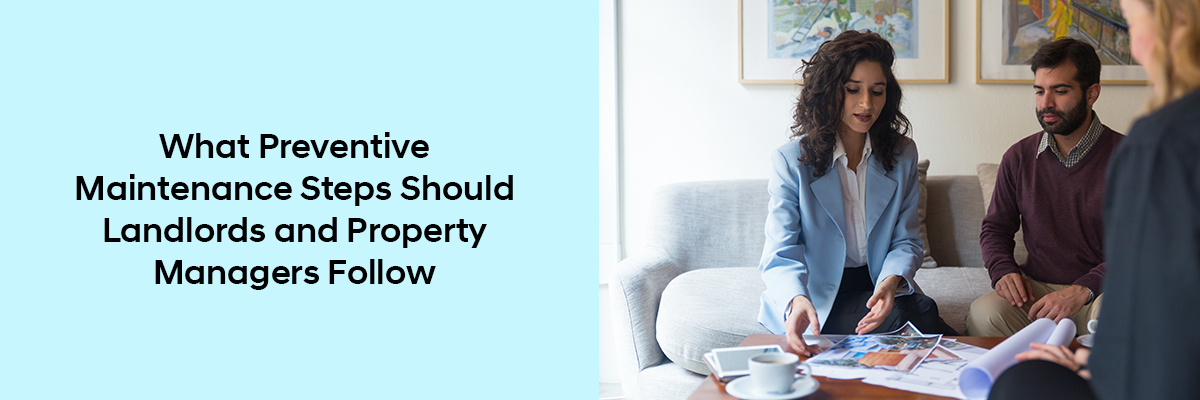As a landlord or property manager, maintaining the condition of your property is not only crucial for tenant satisfaction but also for compliance with laws and regulations. In particular, housing that falls under the Fair Housing Act or is supported by the U.S. Department of Housing and Urban Development (HUD) requires specific standards to ensure the property remains safe and habitable. A well-maintained property ensures that tenants have a comfortable living environment and prevents potential legal or financial troubles for the property owner.
Preventive maintenance is the key to avoiding issues before they arise. By taking proactive steps, landlords and property managers can reduce the risk of costly repairs, tenant complaints, and violations of housing regulations. In this blog, we’ll explore the importance of preventive maintenance and outline the essential steps that should be followed to ensure your property stays in top condition.



The Importance of Preventive Maintenance for Landlords
Preventive maintenance involves regularly inspecting and servicing property components before issues become severe. This approach helps avoid emergencies and extends the lifespan of systems and appliances, such as HVAC units, fire alarms, smoke detectors, and plumbing systems.
For example, imagine a property manager neglects to check the HVAC system before winter. During a cold snap, the heating system breaks down, leaving tenants without heat and creating a stressful situation. Not only does this lead to unhappy tenants, but the property manager may also face fines, complaints to housing authorities, and a costly repair bill. Had they performed regular maintenance, this issue could have been identified and fixed before it escalated.
Preventive maintenance ensures that tenants have a safe, comfortable living space while minimizing the risk of legal trouble, high repair costs, and tenant dissatisfaction. It’s an investment in the property’s long-term health and profitability.
Preventive Maintenance Steps Landlords and Property Managers Should Follow
Now that we understand why preventive maintenance is crucial, let’s dive into the specific steps that landlords and property managers should take. These steps are essential for keeping properties in good shape and ensuring that all systems are working properly.
- Inspect HVAC Systems Regularly
The HVAC system plays a vital role in keeping your tenants comfortable year-round. Regularly inspect and clean filters, check for leaks, and ensure the system is working efficiently. A malfunctioning HVAC system can lead to poor air quality, discomfort, and potentially costly repairs.
Tip: Schedule seasonal checks for your HVAC systems—once before summer and once before winter. This way, you can catch any issues early on. - Test Fire Safety Systems
Fire safety is paramount, and systems like fire alarms, smoke detectors, and fire extinguishers must be in working order at all times.Stay informed about new fire safety deficiencies under NSPIRE to make sure your practices align with updated regulations. Test alarms monthly, change the batteries every six months, and check fire extinguishers for expiration dates.
Tip: Keep a checklist of fire safety maintenance to ensure regular testing and battery replacements. Set calendar reminders to help you stay on top of it. - Check for Leaks and Water Damage
Water damage can lead to severe structural issues and mold growth if left unchecked. Regularly inspect pipes, faucets, and ceilings for leaks. Address any issues promptly to avoid water damage that could lead to costly repairs.
Tip: After heavy rains, inspect the property for signs of water intrusion, especially in basements or other low-lying areas. - Maintain Entry and Exit Areas
The entry and exit points of your property are essential for both security and accessibility. Ensure that doors, locks, and windows are functioning properly. Regularly check for any damage or wear that could pose a security risk.
Tip: Install a maintenance schedule for door and window checks to ensure they remain secure and properly sealed against weather elements. - Clean Common Areas Regularly
Cleanliness plays a significant role in tenant satisfaction. Regularly clean hallways, stairwells, laundry rooms, and other shared spaces to create a welcoming environment.
Tip: Hire a professional cleaning service or assign a staff member to handle common area upkeep on a consistent schedule. - Inspect Electrical Systems
Faulty electrical systems are dangerous and can lead to fire hazards. Regularly inspect electrical panels, outlets, and wiring to ensure compliance with safety standards and to identify potential risks. Staying informed about new electric and lighting deficiencies under NSPIRE can help you address issues proactively.
Tip: Schedule annual inspections by a certified electrician to catch any issues that may not be obvious during routine checks. - Keep Exterior and Landscaping Well-Maintained
The exterior of your property is the first thing tenants and visitors see, so it should be well-maintained. Trim bushes, mow lawns, and remove debris to keep the property looking tidy and attractive.
Tip: Set up a seasonal landscaping schedule to address tasks like leaf removal in the fall and snow clearing in the winter.
Conclusion
Preventive maintenance is an essential part of property management that should never be overlooked, as it helps avoid potential issues that could lead to failing a housing inspection. By proactively maintaining the property, landlords and property managers can ensure that tenants live in a safe and comfortable environment while avoiding legal, financial, and reputational issues. Regular inspections, timely repairs, and attention to detail can help prevent major problems from arising, saving both time and money in the long run.By following these preventive maintenance steps, landlords and property managers can create a positive tenant experience, protect their investment, and comply with regulations. Always remember that a well-maintained property not only benefits tenants but also secures the property’s long-term profitability and success.


